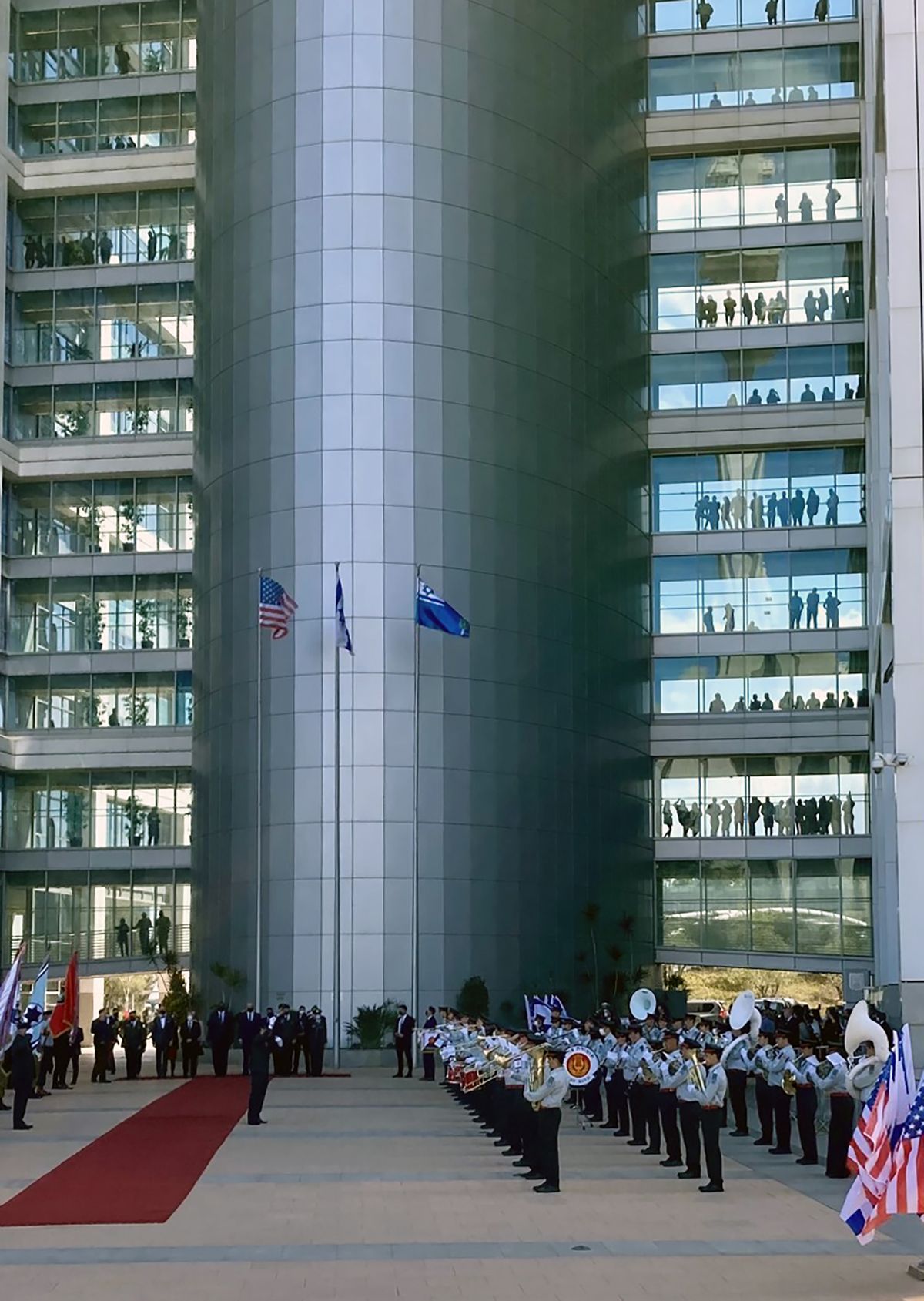Pentagon chief declares ‘ironclad’ US commitment to Israel
FILE - Secretary of Defense Lloyd Austin listens to a question as he speaks during a media briefing at the Pentagon in Washington, in this Friday, Feb. 19, 2021, file photo. U.S. Defense Secretary Lloyd Austin met Sunday, April 11, 2021, in Tel Aviv with his Israeli counterpart and reinforced American support. (Alex Brandon)
TEL AVIV, Israel – U.S. Defense Secretary Lloyd Austin on Sunday declared an “enduring and ironclad” American commitment to Israel, reinforcing support at a tense time in Israeli politics and amid questions about the Biden administration’s efforts to revive nuclear negotiations with Israel’s archenemy, Iran.
Austin’s first talks in Israel since he became Pentagon chief in January come as the United States seeks to leverage Middle East diplomatic progress made by the Trump administration, which brokered a deal normalizing relations between Israel and several Arab states.
By coincidence or not, the defense secretary arrived as Iran reported that its underground Natanz nuclear facility lost power just hours after starting up new advanced centrifuges capable of enriching uranium faster. If Israel caused the blackout, it would further heighten tensions between the two nations, already engaged in a shadow conflict across the wider Middle East. Iran called it an act of “nuclear terrorism” but did not immediately blame anyone directly.
After meeting with Defense Minister Benny Gantz in Tel Aviv, Austin said he had reaffirmed “our commitment to Israel is enduring and ironclad.” Austin made no mention of Iran. Gantz, in his own remarks while standing beside Austin, said his country views the United States as a “full partner” against threats, “not the least, Iran.” Neither official took questions from reporters.
“The Tehran of today presents a strategic threat to international security, the entire Middle East and to the state of Israel,” Gantz said in his prepared statement. “We will work closely with our American allies to ensure that any new agreement with Iran will secure the vital interests of the world and of the United States, prevent a dangerous arms race in our region and protect the state of Israel.”
Yoel Guzansky, a senior fellow at the Institute for National Security Studies, a Tel Aviv think tank, said Austin’s visit is important in part because it is the first by a member of President Joe Biden’s Cabinet.
“They want to show that they did come here with clean hands and they want to listen,” Guzansky said. “They want to listen to Israel’s worries and perhaps other partners’ worries about the negotiation about Iran.”
Austin is steeped in the finer points of Middle East defense and security issues. He served four years as head of U.S. Central Command, capping a 41-year Army career that included commanding U.S. forces in Iraq.
Flying overnight from Washington, Austin arrived in Tel Aviv in the tense aftermath of the country’s fourth inconclusive election in the past two years. Israeli President Reuven Rivlin last week gave embattled Prime Minister Benjamin Netanyahu the difficult task of trying to form a new government.


